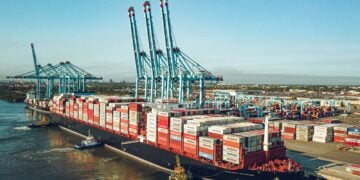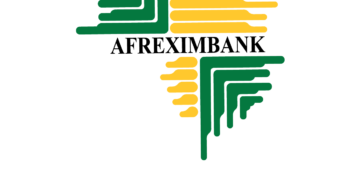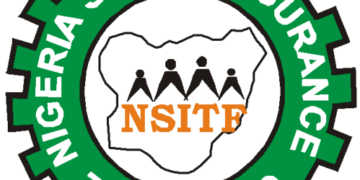After going through teething problems to entrench transparency in the award of marginal fields to qualified indigenous oil and gas operators, the Nigerian Upstream Petroleum Regulatory Commission (NUPRC), is hopeful that awardees would commence production before the end of this June.
Gbenga Komolafe, chief executive officer (CEO) of NUPRC, had recently disclosed that the agency is targeting June for marginal field awardees to begin the field development plan (FDP).
The plan includes all activities and processes required to optimally develop a field.
Komolafe, noted that over 600 companies had applied to be pre-qualified for the bid rounds of 57 marginal fields, which began on June 1, 2020.
The 2020 marginal field bid exercise came with much anxiety given previous bid round that were shrouded with much lack of openness.
Industry players openly expressed doubts about the transparency and credibility of the 2020 marginal fields’ bid round process being handled by the defunct Department of Petroleum Resources (DPR), Nigeria’s oil and gas regulatory agency.
The federal government estimated to raise over $500 million from the bid round in terms of signature bonuses from the 57 fields, penciled down for auctioning.
The exercise came about 17 years after the last one which further created anxiety in the minds of potential bidders.
Industry players presented blueprints to the DPR to demonstrate transparency so as to show that those who are eventually selected have the financial and technical capacity to do business in the sector.
They also demanded to know if the agency intended to carry out the pre-qualification criteria and how they will be weighted in selecting those that will participate at the application stage.
They were also concerned whether the process would independently be handled by the DPR devoid of any political manipulations, given that during the last bid round, a total of 24 fields were given out, with only nine operational till date and 15 abandoned due to political interference.
Experts demanded some level of transparency in the assessment during the pre-qualification assessment and the assessment of the technical and commercial submissions, to ensure that only the most qualified entities with the requisite (financial and technical) capacity are selected.
It was initially unclear what the actual pre-qualification criteria were and how these will be weighted in selecting applicants that will participate at the application stage.
Operators hoped that given the large number of submissions received by the DPR at the pre-qualification stage, it is essential that only companies with the capacity and financial reach are pre-qualified with verifiable sources of funding and funding access.
This they argued became essential so the government also meets with its objective of achieving a production target of 3 million barrels per day by 2023, by getting these assets to production swiftly and the country earns the accompanying royalties and taxes for the respective fields.
If this pre-qualification criteria are not strictly adhered to, it will open the door to a political crony system and insider dealing that have hitherto plagued the previous award system, thus stalling any meaningful development on the assets, some feared.
Some of the concerns raised then was whether there will be a role for the licence operators, which for the marginal fields are largely joint venture concessions of the Nigerian National Petroleum Corporation (NNPC) or its upstream arm, the Nigerian Petroleum Development Company (NPDC).
They also needed to know if independent agencies like the Nigeria Extractive Industry Transparency Initiative (NEITI) will be offered a line of sight of how the process is handled from end to end, as it will be important to give every participating entity a fair chance and ensure there are no loopholes, which parties can circumvent to gain undue advantage.
Stakeholders indeed said that previous bid rounds in Nigeria’s marginal oil fields revealed a sharp decline in interest from serious investors, both local and foreign.
Based on those fears, they recommended that terms governing licensing round must be open and transparent, saying this will boost investors confidence.
Such demands were part of resolutions reached at the end of a one-day workshop on improving transparency in the oil licensing process organised by a coalition of civil society organisations and the media.
The resolution was contained in a communique issued at the end of the virtual workshop and was jointly signed by Peter Egbule, for Coalition of Civil Society Organisations and Bassey Udo, Media Initiative on Transparency in Extractive Industries.
The workshop recommended that for the purpose of transparency, oversight of bidding processes should be provided by the National Assembly, auditing by the Nigeria Extractives Industry Transparency Initiative (NEITI), and continuous monitoring before, during and after the bid process by civil society organizations and the media.
The Stakeholders during the workshop raised concerns that Nigeria’s daily oil production has consistently declined from about 2.3 million barrels per day in 2014 to 1.6 million barrels per day in 2019.
“In 2005, only 57 percent of the oil blocks offered for auction secured at least one bid. The number dropped to 40 percent by 2007. Many of the serious investors were concerned about the law regulating operations in the oil industry. They complained that the legal framework cedes too much powers to the Minister of Petroleum Resources to award or revoke licenses based on his or her discretion,” the communique read.
The Stakeholders said the workshop was necessitated by recent announcement by the Federal Government of its intention to conduct a fresh licensing bid round for Nigeria’s marginal oil fields
The Stakeholders in the communique proffered various recommendations to help improve the chances of Nigeria delivering the next oil licensing bid round that will not only meet globally acceptable standards, but also realize set national objectives to increase oil revenues, boost proven national oil reserves, and raise the country’s daily ooilproduction capacity.
It stated that before the commencement of the bidding rounds, Nigerians should be presented with evidence of the following four key deliverables: A comprehensive national economic development plan detailing how the expected signature bonuses would be utilized in implementing the plan to the benefit of overall industry development and growth.
Others include a national data repository to be used as the single source of verified data open to all parties in the bid; Widely published information on the value of assets to be included in the basket of assets to be put on offer, to eliminate arbitrage opportunities resulting from information asymmetry;
“That as a prerequisite, President Muhammadu Buhari should publicly declare that he would not invoke his discretionary powers as Minister of Petroleum Resources before, during and after the bid licensing process.
“This public declaration is critical to rebuilding the confidence of serious investors to participate in the bidding process trusting that whatever will be the outcome will not be subject to any boardroom intervention outside strict aadherence to approved bid guidelines and rules,” the communique read.
The communique reads further, “During the bidding process, Nigerians should be presented with evidence of the following: Stringent selection criteria during the bidding process to limit the exclusive pool to only firms with the requisite financial and technical capabilities.
“Comprehensive details of all prospective bidders on a medium easily accessible by members of the public; Measures to effectively monitor the bid process to ensure successful firms pay their signature bonuses in full and into government designated accounts.”
Erasing Stakeholders Fears
The Nigerian Upstream Petroleum Regulatory Commission (NUPRC), painstakingly reviewed all concerns and process adopted in the and quickly took up the daunting task of closing out on the 2020 marginal oilfield bid round in a manner that shows strict adherence to the rules guiding approvals and issuance of licenses in the upstream sector of the nation’s oil and gas industry.
The commission’s Chief Executive Officer, Mr. Gbenga Komolafe, recently expounded the need for the regulator to ensure that law and due process were followed in the award of licenses to operators, stating categorically that under his leadership, no marginal field operator would be allowed to “trade” in papers issued by the organisation.
He stated that the rule of law would be strictly followed in the issuance of final licences to the winners, stating that no amount of pressure would make the commission award final documents without due process.
Convinced that all precautions have been taken care of, he projected that the agency, is targeting June for marginal field awardees to begin the field development plan (FDP).
The plan includes all activities and processes required to optimally develop a field.
Komolafe, who spoke on ‘The Morning Show’ of the ARISE News Channel on Monday, noted that over 600 companies had applied to be pre-qualified for the bid rounds of 57 marginal fields, which began on June 1, 2020.
In May 2021, the defunct Department of Petroleum Resources (DPR) completed the first successful bid programme.
The process, which commenced in 2020, was bogged down by bureaucratic challenges, meaning that the actual drilling for oil has yet to effectively take off over a year after the awardees were officially handed award certificates.
Speaking on the issue of the 2020 marginal fields award, Komolafe said although the commission came into a difficult situation, it would resolve all issues by the first half of this year.
“It’s critical because one of our cardinal objectives is to ensure that we increase the national oil production, and of course, we realise that the fields will help in enhancing that,” the CEO said.
“We took the issue frontally. It’s really been very challenging to handle the issue in the sense that the model used poses serious challenges to bringing the matter to an end quickly.
“But I want to assure Nigerians and indeed the awardees that we have been able to, as I speak, tried to bring the issue to a manageable state and devise a strategy for bringing the challenge to a close.”
According to Komolafe, there has been over 80 per cent compliance in terms of payment.
“In fact, one of the challenges we’ve had is that even forming the SPVs, they are still having challenges working together because of the nature of the model used,” he added.
“But by and large, I want to say that, we as a commission, we will learn from this experience, and I want to assure Nigeria that the next marginal bid will not be bogged down by these kinds of challenges we experienced in managing the fallout of the 2020 marginal field.”
“Before the first half of the year, we want to see a situation where some of the awardees will be proceeding to field development plan.
“At the moment again, we have recorded close to 90 per cent of the co-awardees forming their SPV, and at that stage, it is the very comfortable stage when the commission can go ahead to issue Petroleum Prospecting Licences (PPLs).”
About two months ago, NUPRC had said it would invite eligible reserve bidders for the 2020 marginal field bid round programme.
Assessing Previous Challenges
LEADERSHIP WEEKEND reports that marginal oil field development was introduced in Nigeria with the objectives of increasing indigenous participation in the upstream petroleum sector and increasing the national petroleum production capacity amongst others.
In the beginning twenty-four of the identified 116 marginal fields were awarded to 31 indigenous companies in 2003 and in 2017, the Federal Government announced her readiness to carry out a new round of licensing bid.
Despite its good intentions the development of marginal oil field has not been fully successful, despite the policy initiative by the Federal Government of Nigeria. Only few of the fields are producing as many of the marginal field operators are battling with funding, social, political, environmental and technical challenges.
With the openness and transparency strides of NUPRC, operators are optimistic that the marginal field initiative has come to stay within the Nigerian oil industry since the signing of farm out agreements in 2003 between the multinational oil companies, the Nigerian National Petroleum Corporation and the indigenous companies.
The agency is deepening collaborations to deal with challenges such as security of operations, funding, lack of technical know-how, Quota restriction, Lack of infrastructure, Fiscal terms & incentives, Inconsistency in government policies, Gas development, Non availability of rigs, Violation of agreement terms were earlier reported as affecting the progress of the initiative.
Today, there are about 251 marginal fields in Nigeria with an estimated 2.3 billion barrels of proven recoverable oil reserves.
Marginal oil fields in Nigeria are dotted in the oil producing states in the Niger Delta Area.
The first marginal oil field to be farmed-out in the country was between NNPC/Chevron and the Niger Delta Petroleum Resources Limited (an indigenous company) respecting the Ogbelle field in OML 54 (located in Rivers State‟s up-land area) in 1994.
In 2003, twenty-four marginal fields containing about 300 million barrels of crude oil were awarded to 31 Nigerian companies, 5 over which 60 per cent of these fields are said to be onshore.
The twenty-four marginal fields which were available for bidding were in the concessions held by the NNPC joint venture with Chevron, Texaco, Elf Petroleum, Nigeria Agip Oil Company LTD and Shell Petroleum Development Company of Nigeria LTD, that is to say, the NNPC joint venture with Elf, Agip and Shell that is operated by Shell.
As expected, all the winners were indigenous companies, including some owned by the Governments of Akwa Ibom, Bayelsa, Delta and Rivers States.
In 2006 and 2007 respectively, the Federal Government discretionarily awarded two fields to Orient Energy to compensate the company for losing part of OML 115 to Equatorial Guinea following a boundary adjustment exercise between Nigeria and Equatorial Guinea.
Also in 2010, three fields were awarded on discretionary basis to All Grace Energy, Green Energy International and Niger Delta Petroleum Ltd respectively and in 2013, the Federal Government announcement the second licensing round for 31 marginal oil fields in Nigeria.





